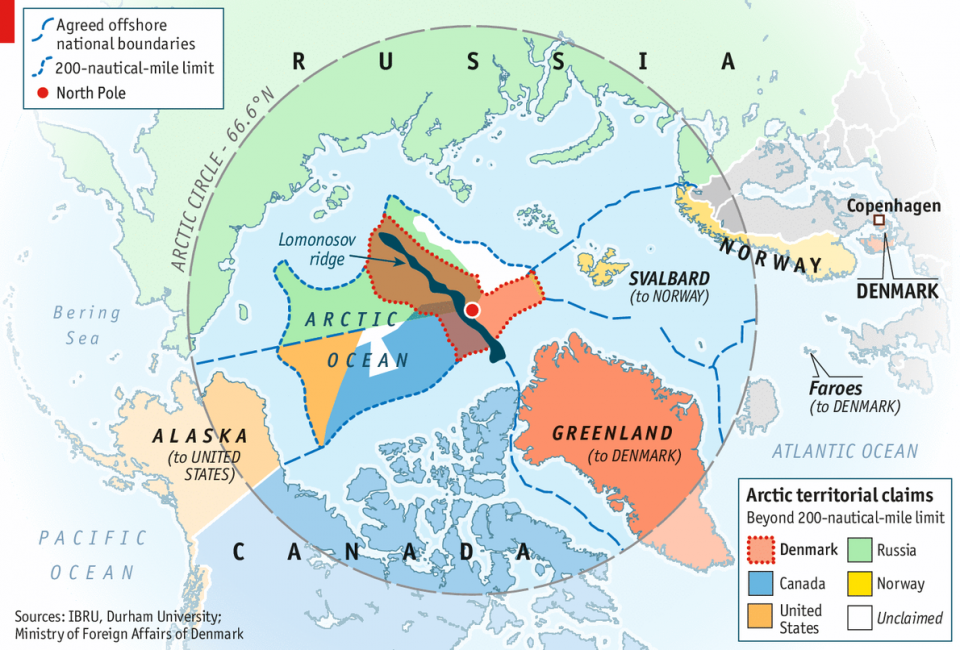Regional Cooperation
The region collectively known as the “Arctic” is made up of eight nations, the United States (Alaska), Canada, Russia, Norway, Denmark (by way of Greenland), Iceland, Sweden and Finland.
Arctic lands and proximate waters are governed by the laws of each Arctic state. Moreover, the 1982 UN Convention on the Law of the Sea lays out determinations for territorial sea boundaries, Exclusive Economic Zones (EEZ’s) and the ownership of the Outer Continental Shelf, including in the Arctic Ocean. The Law of the Sea Treaty also sets up systems of conflict resolution of which there have been several in the region. Even though the United States abides by the terms of the treaty, the United States Senate has yet to ratify it.
The eight Arctic states also collaborate and cooperate via the Arctic Council, a non-binding forum that also includes participation from organizations representing Arctic indigenous populations and observer, non-Arctic nation states. The council focuses on environmental stewardship, sustainable economic development and other issues of common importance to the Arctic nations. In April 2015, the United States will assume a two-year leadership for the Arctic Council and is poised to push initiatives on environmental stewardship, mitigating and adapting to climate change, and economic opportunities, according the U.S. Special Representative to the Arctic Admiral Robert Papp.
Tensions

While the Arctic is a place of international cooperation, it is also a place of geostrategic tensions between the various states in the region, most notably between the U.S./ Canada bloc and Russia.
Under direction from President Putin, Russia is the investing billions of dollars in Arctic infrastructure and military capabilities and is one of, if not the most, dominant actor in the region. Russia is developing a military command for the region, investing in a new fleet of large icebreaking ships, and building a network of search and rescue bases and a new air base in the New Siberian Islands Archipelago.
Territorial disputes are also increasing. Most recently, Denmark laid claim to the North Pole by virtue of Greenland’s placement along the Lomonosov Ridge. The U.S. is preparing its claim, while Russia and Canada have already claimed the area.
Additional disputes include the determination of the Northwest Passage as a free navigation zone (Canada believes the route to be an inland waterway), and the placement of the maritime boundary in the Beaufort Sea.
All this presents a challenge for the United States. Influence in the region is important as nations establish territorial boundaries and international rights to the region’s rich natural resource base. As counties pour more resources into the region, the Arctic Council will take on a greater relevance and member states will need to decide if they want the organization to expand its role as a forum on other issues such as militarization, natural resource regulation and transportation.